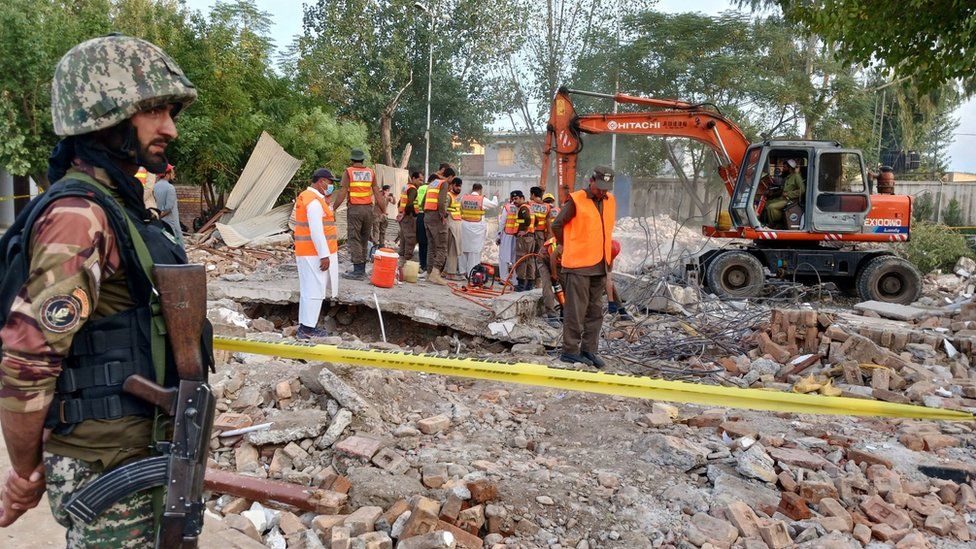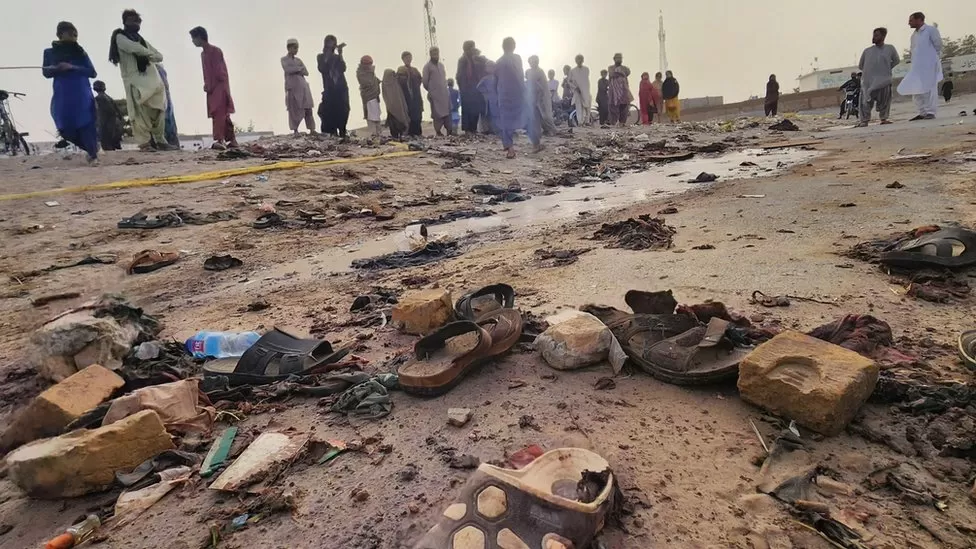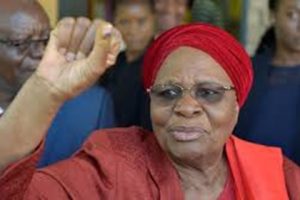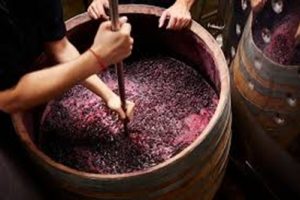The blast happened near a mosque in the south-western Balochistan province on Friday as people gathered to celebrate the birth of the Prophet Muhammad.

Officials in Balochistan have declared a state of emergency. No group has claimed responsibility for the attack.
Meanwhile, at least five people died in a separate blast at a mosque near Peshawar City in Khyber Pakhtunkhwa province.
Footage from the scene in the Baloch city of Mastung showed injured people being rescued by emergency responders and locals.
“Bodies were lying on top of one another,” said Saifullah, a local journalist in his 40s.
“The crowd was waiting for a [celebratory] procession to begin. I was standing nearby when the bomb went off,” he said, adding that 10 to 12 of his relatives died.
Haibullah, 22, was injured in the attack. Speaking to the BBC from his hospital bed in Quetta, the provincial capital of Balochistan, he said: “Everything was ready on the stage. The bomb went off two minutes after I arrived.
“Everyone fell from its impact. I broke my foot.”
Sarfaraz Ahmed Sasoli, in his 20s, was part of security for the procession. He said the suicide bomber approached the area while religious leaders were gathering.
“My elder and younger brothers were injured, along with my friends. Everyone from our area has a brother, father or son injured,” he said.
Local hospitals were overwhelmed by the number of casualties and local authorities appealed on social media for blood donations.
Balochistan’s police chief Abdul Khaliq Sheikh confirmed the explosion was a suicide blast. He said a senior police officer was killed while trying to stop the attacker.
Pakistan’s Interior Minister Sarfraz Bugti said the blast was a “very heinous act” and condemned what he called “terrorist attacks” in both areas.

Meanwhile a spokesman for Khyber Pakhtunkhwa police said that two suicide bombers and a vehicle full of explosives had been intercepted.
One of the bombers had been “neutralised on the gate” when he tried to enter the mosque, located in a police complex in the town of Hangu, he said.
At least five people were killed but but police said a number of people could be trapped under rubble after the roof collapsed.
Bordering Afghanistan and Iran, Balochistan is Pakistan’s largest province and has frequently been hit by armed fighters including the Tehrik-e Taliban Pakistan (TTP) or the Pakistani Taliban, and the Islamic State group.
Earlier this month, at least 11 people – including a prominent Muslim leader – were injured in an explosion in the same district.
However, the TTP have denied involvement in Friday’s blast, saying in a statement that such an attack was against its policies.The group also “vehemently condemned” the attack in Khyber Pakhtunkhwa, stating that “mosques, schools, and public gatherings are not part of our targets”.
Pakistan’s caretaker Information Minister, Murtaza Solangi, wrote on X that the “very fact that the terrorists chose to target the celebration of the birth of the prophet (PBUH) and the Friday prayer” proved that they “have nothing to do with any religion, ideology and morality”.
The Pakistani state celebrates the birthday of the Prophet Muhammad on the 12th day of the third month in the Islamic calendar.
There is a public holiday, the day begins with gun salutes in Islamabad and provincial capitals, and public spaces are decorated with colourful lights.
Scholars from almost all schools of thought agree on celebrating the day. Processions take place, many organised by the Sunni Barelvi school of thought adhered to by a majority in Pakistan.
However some religious movements disagree with holding processions, saying there is no evidence of them taking place during the time of the Prophet and subsequent years.
Source: BBC NEWS




















Add Comment